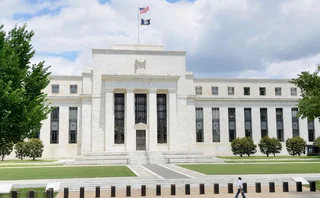
Echo, European Multilateral Netting Group Starts Ball Rolling, Up By End Of 1991?
BANKS
A consortium of banks in Europe is developing plans for a multilateral foreign exchange netting system -- the first of its kind. The system is scheduled to become operational towards the end of next year.
The Exchange Clearing House Organization (ECHO) has sent a 190-page invitation to tender to more than 15 software houses, which will not only write the software but will specify the hardware. Bids are due at the end of this month. Once bids are in, the final business plan should be presented for
Only users who have a paid subscription or are part of a corporate subscription are able to print or copy content.
To access these options, along with all other subscription benefits, please contact customer services - www.fx-markets.com/static/contact-us, or view our subscription options here: https://subscriptions.fx-markets.com/subscribe
You are currently unable to print this content. Please contact customer services - www.fx-markets.com/static/contact-us to find out more.
You are currently unable to copy this content. Please contact info@fx-markets.com to find out more.
Copyright Infopro Digital Limited. All rights reserved.
As outlined in our terms and conditions, https://www.infopro-digital.com/terms-and-conditions/subscriptions/ (point 2.4), printing is limited to a single copy.
If you would like to purchase additional rights please email info@fx-markets.com
Copyright Infopro Digital Limited. All rights reserved.
You may share this content using our article tools. As outlined in our terms and conditions, https://www.infopro-digital.com/terms-and-conditions/subscriptions/ (clause 2.4), an Authorised User may only make one copy of the materials for their own personal use. You must also comply with the restrictions in clause 2.5.
If you would like to purchase additional rights please email info@fx-markets.com
More on Central Banks
Saxo Bank: Lagarde may declare monetary policy overreached limits
In one of its ‘outrageous predictions’ for 2020, the Danish bank says the ECB may wake up to the sad reality of negative interest rates
Cambodia extends blockchain payment system pilot
Central bank lengthens trial to end of year and explores including cross-border transactions
Central banks urged to adopt DLT-based CBDC
Industry figures argue central bank money needed for token-based securities settlement, but central bankers sceptical
Fed provides update on future RTGS system
FedNow cross-border payments could be considered in future, US central bank says
Shekel’s strength clouds Bank of Israel’s inflation outlook
Economists ponder whether central bank actions contribute to lower prices and what priorities it should consider in the near future
Central banks need better crypto asset data – ECB research
Links between crypto assets and regulated financial sector may increase and challenge regulatory frameworks
Thai central bank to work with HKMA on cross-border blockchain
Central banks to work on technology to transfer funds across borders
US Treasury designates China a currency manipulator
Renminbi crosses barrier of seven yuan per US dollar amid trade tensions on August 5







